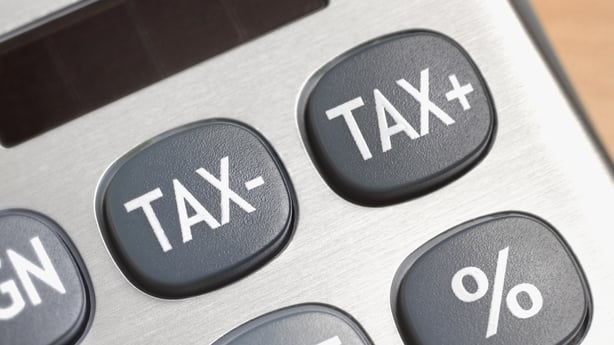Corporation tax receipts of €1.9 billion were collected in March, down by €700m, or 28.6%, on the same month last year, with the Minister for Finance warning that "the era of over-performance of corporate tax is coming to an end".
The latest Exchequer Returns from the Department of Finance show that in the first quarter of the year, corporation tax receipts of €2.4 billion were €800m, or 24.8%, lower than the same period last year.
The corporate tax take for the first three months of the year is €1.1 billion, or 31.8%, below forecast.
"Indications suggest that this may reflect a timing issue, with a corresponding increase later in the year offsetting the decline," the Department of Finance said.
Minister for Finance Michael McGrath said the first quarter figures were a continuation of the pattern evident in the second half of last year, with steady growth in income tax and VAT receipts but with significant volatility in corporation tax revenues.
"The performance of the income tax and VAT tax heads provide evidence of a domestic economy that is performing well, notwithstanding continuing international headwinds," Mr McGrath said.
"While it is expected that the fall in corporation tax this month relates to timing issues and is likely to be made up later in the year, it serves to remind us of the inherent unpredictability in what is a highly concentrated revenue stream," he added.
Minister McGrath said the Exchequer returns showed a surplus of €300m but there was a decline in corporate tax which was offset by growth in other taxes.
He added excise duties were up 14% in the first quarter of 2024.
Overall, the figures show that an exchequer surplus of €300m was recorded in the first quarter of the year. This compares to a deficit of €2.1 billion in the same period last year.
Total tax receipts of €20.1 billion in the first quarter were 1.8% ahead of the same period last year with increased income tax and VAT receipts offset by the decline in corporation tax.
The drop in corporation tax led to the overall tax receipts figure for the first quarter coming in lower than forecast.
Tax receipts of €8.1 billion were collected in March, down by €300m or 3.4% on the same month last year driven by the fall in corporation tax.
Income tax receipts of €2.6 billion were up on March last year by €300m, or 11.8%.
VAT receipts amounted to €2.9 billion in March, €200m, or 6.2% higher than a year earlier.
Total expenditure in the first quarter of the year amounted to €25.4 billion.
Non-voted expenditure accounted for €2.7 billion, which was €4.5 billion down on the same period in 2023, reflecting a transfer to the National Reserve Fund in February 2023.
Minister for Public Expenditure Paschal Donohoe said there was a need for "continued work" to bring spending in line with projections on Budget Day.
He added that the largest spending growth was in Social Protection where there was a lump sum paid to social welfare recipients in the first quarter of the year.
He said more work was underway regarding spending in the Departments Health, Education and Integration which was related to spending in relation to international protection applicants.

Tom Woods, Head of Tax at KPMG said before 2022, March was not a significant month for corporation tax receipts.
"But payments of €2.5 billion in 2023 and €1.5 billion in 2022 bucked the trend," he said.
"While today's corporation tax results are down on last year, it’s too early in the year to determine whether this is a broadly based trend or just a timing issue relating to the performance of some large contributors," he added.
"The combined performance of income tax, VAT and excise receipts for Quarter 1 which are €1.2 billion ahead of last year, reflect real strength in the economy, pointing to both the buoyant labour market and robust consumer demand.
Additional reporting David Murphy







